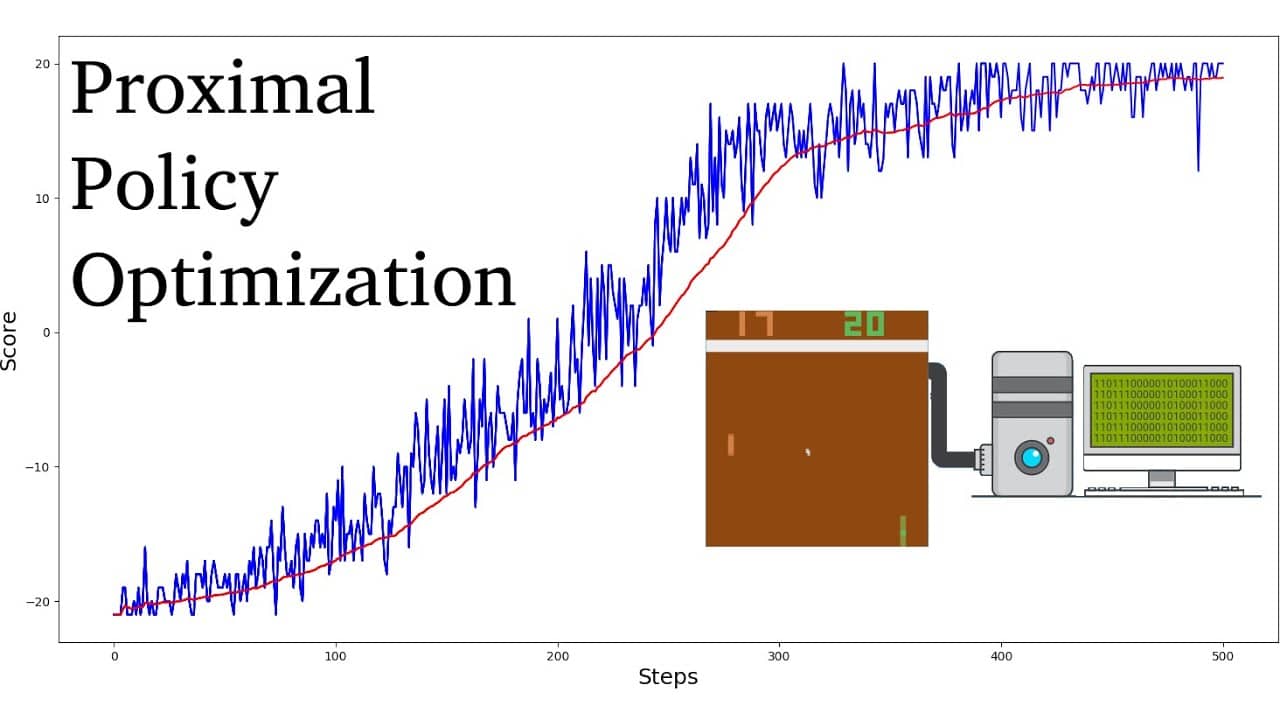Proximal policy optimization (PPO) is a family of policy gradient reinforcement learning algorithms used in artificial intelligence. It was invented in 2017 by John Schulman, Filip Wolski, Prafulla Dhariwal, AlecRadford, and Oleg Klimov. PPO is an approximation of natural policy gradient that simplifies and speeds up the training procedure.
PPO algorithms work by applying a stochastic policy gradient to update an agent’s policy in a direction that improves the expected reward and stabilizes training. This is done by using an optimization technique called the proximal policy optimization which enables an agent to adjust the parameters of its action-value function by only considering action-value functions within a small region of the current best. This ensures that only small changes are made in any given training step, allowing for easier and more stable learning.
In comparison to other reinforcement learning algorithms, PPO has been shown to require fewer samples and iterations to reach convergence, while also achieving higher optimal reward values. Furthermore, the tuning of hyperparameters necessary for PPO algorithms is significantly simpler than with other reinforcement learning algorithms.
PPO algorithms are generally considered to be more sample-efficient than other policy gradient algorithms such as Trust Region Policy Optimization (TRPO). They are also known to be more stable, making them suitable for real-world applications. As such, PPO algorithms have seen great success in robotics, video game playing, and autonomous driving.






